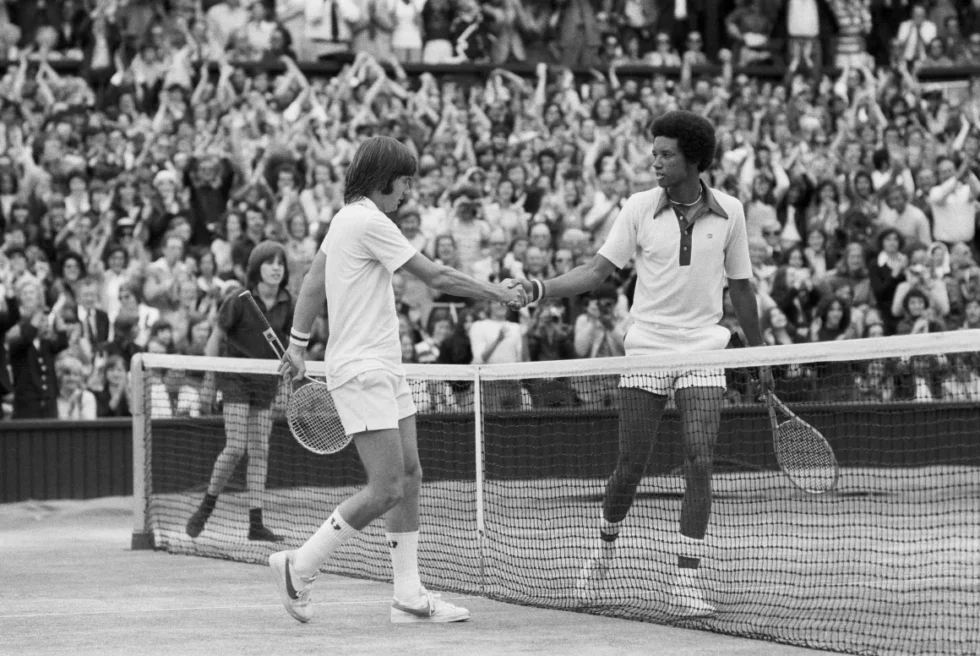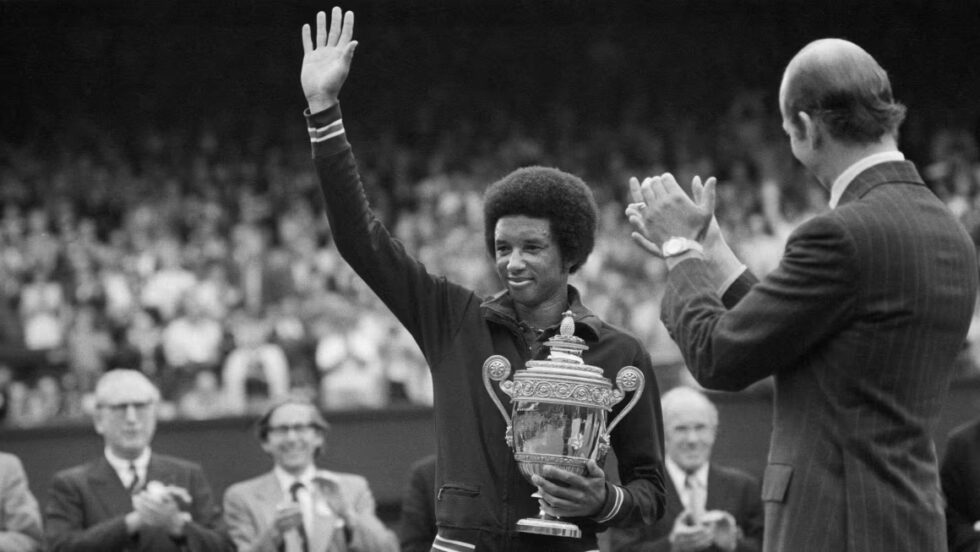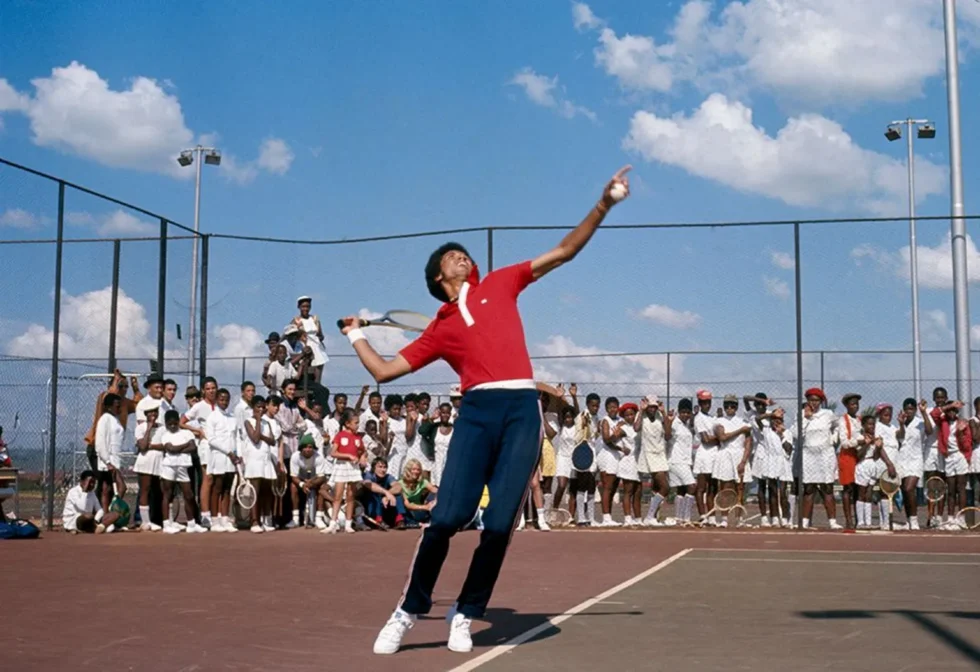Wimbledon – Today marks the 50th anniversary of one of the most significant moments in tennis history. Arthur Ashe stepped onto Centre Court, defeated defending champion Jimmy Connors, and became the first Black man to win the gentlemen’s singles title at the world’s most prestigious tennis tournament. With composed presence, tactical intelligence, and historical significance, Ashe wrote far more than just sports history. This was reported by G.Business, citing CNN and BBC reports.
What appeared to be a sports victory was, in truth, a political milestone. Ashe, calm, self-assured, and deeply reflective, accepted his historic triumph with humility. “I don’t want to be remembered for winning Wimbledon. That wasn’t the most important thing in my life—not even close,” he told the BBC in a 1992 interview, just months before his death.
Born in 1943 in segregated Richmond, Virginia, Ashe grew up in a country where Black children were banned from using the same sports facilities as white children. As a teenager, he was excluded from tournaments because of his race. He played on isolated courts, was ignored—and learned to respond with dignity. In 1963, he became the first African American on the U.S. Davis Cup team. He went on to win the US Open in 1968, the Australian Open in 1970, and Wimbledon in 1975. Yet for Ashe, these victories were tools to raise awareness of structural injustice.

Mirrorpix/Getty Images
South Africa and Apartheid: Confronting Injustice Through Visibility
In the early 1970s, the apartheid regime in South Africa repeatedly denied Ashe a visa for “political reasons.” In 1973, they allowed him entry under the condition that audiences be racially mixed. Ashe, believing that engagement was more powerful than boycotts, traveled there—despite criticism from activists. “I can’t judge a country I’ve never been to,” he said. In Soweto, he gave tennis lessons to children, many of whom saw hope in him. Author Mark Mathabane later wrote: “He was the first free Black man I ever saw.”
Though called an “Uncle Tom” by South African media and pressured to leave by demonstrators, Ashe stayed. He wanted to see the truth—not from hotel rooms but in townships. Over time, he changed his position, supported a full sports boycott, co-founded Artists and Athletes Against Apartheid with Harry Belafonte, and spoke at the UN and U.S. Congress.
Activist with Purpose and Dignity
After his career, Ashe turned to social and health advocacy. Following heart surgery in the 1980s, he learned he had contracted HIV from a blood transfusion. In 1992, in a time when AIDS was still taboo, he made his diagnosis public. He founded the Arthur Ashe Foundation for the Defeat of AIDS and spoke at global forums, including the WHO and schools across the U.S.
Ashe died in 1993 at just 49 years old. In his will, he left behind a clear legacy: he had been more than an athlete. A thinker. A mediator. An activist.

Mirrorpix/Getty Images
Tributes in Wimbledon and Beyond
To mark the 50th anniversary of his Wimbledon win, the 2025 tournament features a special exhibition at the Wimbledon Lawn Tennis Museum. A red London phone booth plays original audio recordings of the 1975 final. His family was invited to the Royal Box, and workshops for young athletes were created in his name.
Frances Tiafoe, currently ranked 12th in the world and the son of African immigrants, calls Ashe a role model: “He didn’t just talk—he acted. His story is also mine.” In 2020, Tiafoe wrote an open letter to Ashe: “This little boy with big dreams now carries your name. That’s crazy.”
The tennis center Ashe established in Soweto was restored in 2007 and now serves young South Africans. Serena and Venus Williams continue to support the center.
Legacy & Impact:
- 1st Black Wimbledon men’s champion
- 3 Grand Slam titles (US Open 1968, Australian Open 1970, Wimbledon 1975)
- Founder of the Arthur Ashe Institute for Urban Health and the Foundation for the Defeat of AIDS
- Statue at Arthur Ashe Stadium in New York
- Protester against U.S. policies in Haiti, supporter of Nelson Mandela
- Arrested, mocked, admired—Ashe remains a symbol of excellence with moral leadership
His strength wasn’t just in his serve, but in his silence when others shouted—and in his voice when others stayed silent.
Final words echo today, as Frances Tiafoe said after reaching the US Open quarterfinals in 2022, inspired by Ashe’s legacy:
“Believe in yourself—it’s so big. You have to believe in yourself before anybody else does.”
Stay informed with stories that matter — here’s an insightful read on how Wang Ning built a $22.7 billion toy empire with a fluffy monster called Labubu.
Foto - Mirrorpix/Getty Images



